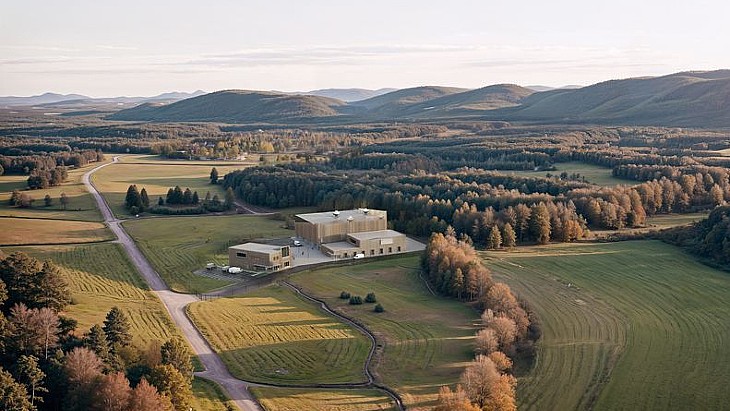The agreement is to promote the technical development of Blykalla's lead-cooled reactor concept through applied research, prototype testing and joint business development. It aims to "raise the technology readiness levels of key components, develop sector-specific solutions for energy-intensive industries, and optimise verification and validation strategies through digital modelling".
Malin Frenning, CEO of the Research Institutes of Sweden (RISE), said: "Nuclear power is part of Sweden’s work on climate transition, resilience, and competitiveness. Through our partnership with Blykalla, RISE contributes applied research, structured testing, system modelling, and industrial integration - key components that strengthen the foundation for the development and verification of advanced nuclear technology."
The two parties will seek to identify real-world use cases and "build a competitive ecosystem for SMR technology in Sweden and internationally" looking at deployment in both industrial and municipal applications.
Jacob Stedman, CEO of Blykalla, said: "RISE's capabilities in applied research, structured testing, and system modeling give us valuable tools to strengthen and validate SEALER’s design. This collaboration will help us refine key components, streamline verification, and keep our development on track toward commercial deployment in Sweden."
Blykalla is a spin-off from the KTH Royal Institute of Technology in Stockholm, where lead-cooled reactor systems have been under development since 1996. The company - founded in 2013 as a joint stock company - is developing the SEALER (Swedish Advanced Lead Reactor) lead-cooled SMR.
Blykalla plans to construct its first reactor, SEALER-One, in Sweden. It will function as a demonstration of its technology, and at the same time be used for pyrolysis, whereby industrial customers can utilise its steam for, among other things, decarbonised biochar production. The company aims to achieve criticality of SEALER-One by 2029. Blykalla has a letter of intent in place with nuclear technical services company Studsvik to develop SEALER-One on its site in Nyköping, Sweden. Licensing work is currently under way.
In the long-term, Blykalla plans to deploy up to 1000 SMRs by 2050, delivering 500 TWh of clean energy annually to industrial users that cannot rely on intermittent power sources. It says SEALER is designed to serve sectors such as hydrogen production, process heat, and pyrolysis, with the potential of significantly reducing global carbon dioxide emissions and securing industrial resilience and growth.
In April Blykalla entered a strategic collaboration with Norway's Institute of Energy Technology focusing on areas including the development of control room and operator environments, as well as the design of instrumentation and control systems to enable remote and autonomous operation. It broke ground in February for the construction of an electrical small modular reactor pilot facility near Oskarshamn to test proof of concept of its SEALER technology.





_52351.jpg)


_15863.jpg)






